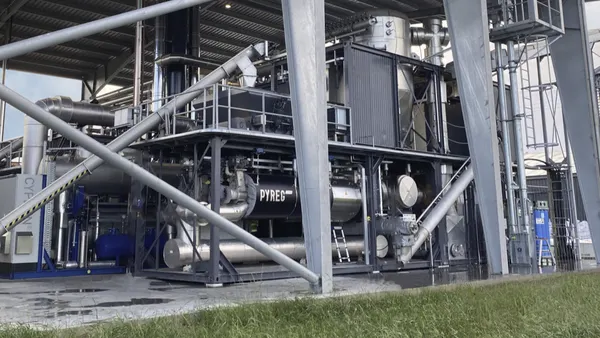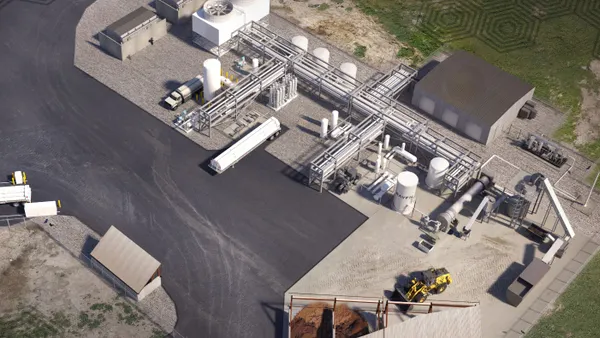Dive Brief:
- Rep. Elise Stefanik, R-NY, recently introduced H.R. 4137, a measure that would extend tax credits for electricity produced from a number of renewable sources, including biogas and waste-to-energy.
- The bill would make it so that biomass, geothermal, landfill gas, "trash facilities" and hydropower facilities are again covered under Code Section 45 and given a production tax credit for generating electricity.
- In a press release, Stefanik said that renewable energy sources, like biomass, municipal solid waste and hydropower, "represent a new frontier for our environment and for economic growth, and it's important that we give them the support they need."
Dive Insight:
This measure isn't seen as reinventing the wheel, but returning to the norm. Under Code Section 45, biomass, WTE and landfill gas projects were given tax credits, along with other renewable energy projects, like wind and solar. In 2015, a spending bill extended tax credits for wind until the end of 2019 — but the tax credits for biomass, WTE and landfill projects have expired. Stefanik's bill, which is currently sitting with the House Ways and Means Committee, would restore credits for waste-related energy projects.
Restoring the tax credits to waste-related projects would likely be seen as a relief, especially to the biogas industry. The somewhat-uncertain future of the Renewable Fuel Standard (RFS) has led biogas producers and other industry groups to submit comment to the Environmental Protection Agency. Administrator Scott Pruitt said the agency would finalize volumes under the RFS by the end of November. A federal tax credit for biogas projects could assuage some of the disruption that would come from too-low required volumes. This is also a priority for WTE leader Covanta, according to recently filed third quarter lobbying reports. Any type of credit would be helpful for the U.S. WTE industry as expansion, let alone the construction of new facilities, is seen as unlikely in the near future.
The path forward is, as with most things in the current political climate, unclear. The House recently approved a budget plan that is seen as the first step toward a possible tax reform debate. While Stefanik's bill does not yet have any co-sponsors, inclusion in a larger tax reform bill may be a way forward.








